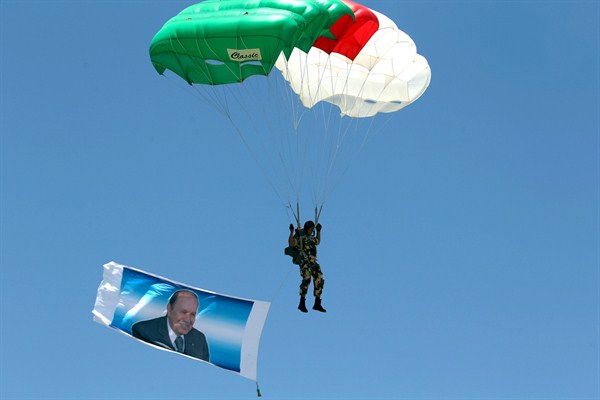When Algeria’s newly appointed prime minister, Ahmed Ouyahia, addressed parliament last month, he ominously declared that his government would be insolvent by November. Three years of low oil prices had rapidly expanded the country’s budget deficit and eroded its reserves, leaving it with little cash to pay public sector employees or invest in the type of projects that would keep the private sector afloat.
Ouyahia’s startling admission provided the pretext for unveiling a new, unconventional monetary policy that he argued would buy Algeria some more time to fix its finances and execute reforms.
Ouyahia’s policy—known popularly by economists as “helicopter money,” because of its likeness to a helicopter-drop of supplies to a community in need—involves the Central Bank covering the state’s budget deficit by printing more money and injecting it directly into the Treasury, instead of borrowing from abroad. While the approach will stave off bankruptcy, it is not a permanent solution and involves the acute risk of hyperinflation and currency depreciation, especially in an economy without a deep asset base.

